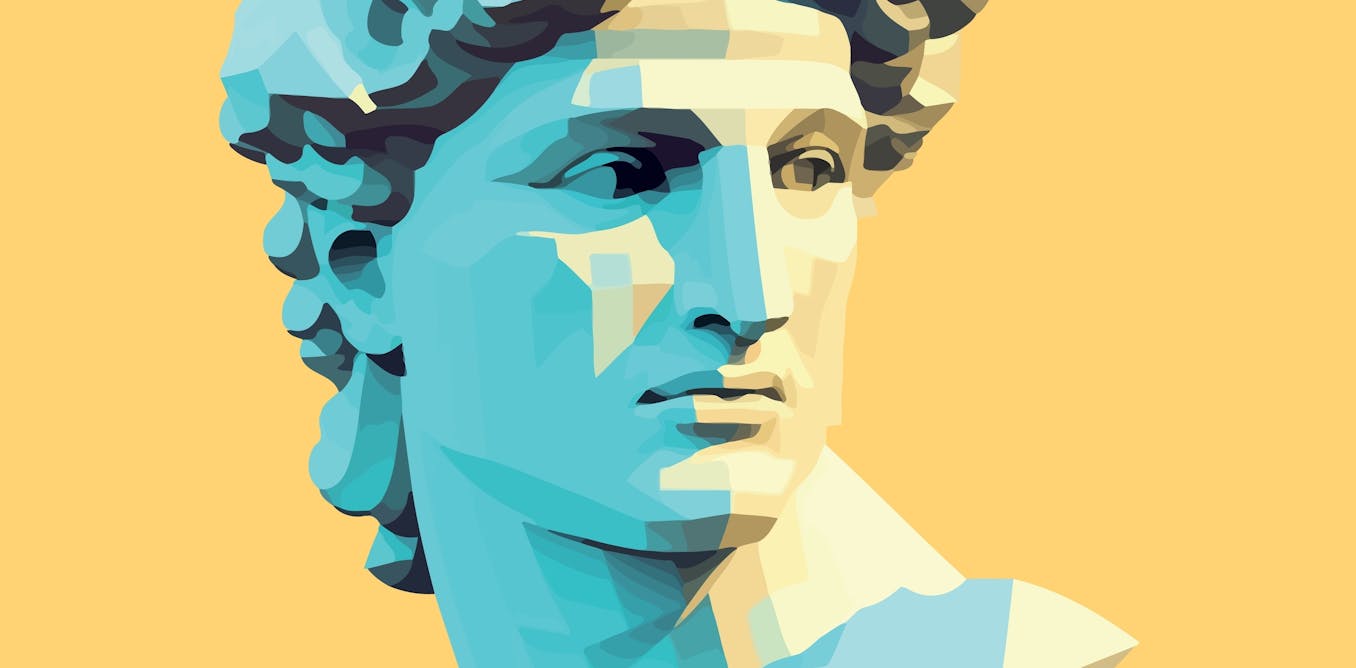According to the World Health Organization, about 280 million people worldwide suffer from depression and about one billion people have a mental health problem of some kind.
People in ancient times also had psychological problems. How did they deal with them?
As we will see, some of their insights into mental health are still relevant today, even if we might question some of their methods.
1. Our mental state is important
Mental health problems such as depression were known to people in ancient times. Homer, the poet famous for the Iliad and the Odyssey, who lived around the 8th century BC, apparently died after suffering from depression.
As early as the late 5th century BC, ancient Greek physicians recognized that our health depends partly on our state of mind.
In Epidemics, a medical text from 400 BC, an anonymous physician wrote that our habits of thought (as well as our lifestyle, clothing and housing, physical activity, and gender) are the main factors that determine our health.

Thirasia/Shutterstock
2. Mental problems can make us sick
An anonymous doctor also described one of his patients, Parmeniscus, during the epidemics, whose mental state deteriorated to such an extent that he went mad and eventually could no longer speak. He remained in bed for 14 days before he was cured. We are not told how.
Later, the famous physician Galen of Pergamon (129-216 AD) noted that people often become ill due to a poor mental state:
It may be that “thinking” is, under certain circumstances, one of the causes that produces health or disease, for people who get angry about everything and become confused, troubled and frightened for the slightest reason, often become ill for this reason and have difficulty overcoming these diseases.
Galen also described some of his patients who suffered from mental health problems, including some who became seriously ill and died. One man had lost money:
He developed a fever that stayed with him for a long time. In his sleep he scolded himself for his loss, regretted it, and was agitated until he woke up. While awake he continued to sink into grief. Then he became delirious and developed brain fever. Finally he fell into a state of delirium, which was evident from his words, and he remained in that state until he died.
3. Mental illnesses can be prevented and treated
In ancient times there were many different ways to prevent or treat mental illnesses.
The philosopher Aristippus, who lived in the fifth century BC, advised people to focus on the present to avoid mental disorders:
Concentrate on the day and on that part of the day in which you act or think. Only the present belongs to us, not the past or what is expected. The former has ceased to exist, and it is uncertain whether the latter will exist.
The philosopher Clinias, who lived in the fourth century BC, said that whenever he felt himself getting angry, he would go and play music on his lyre to calm himself down.
Doctors had their own approaches to dealing with mental health problems. Many recommended that patients make lifestyle changes to improve their mental state. They advised people to start a new exercise program, eat a different diet, travel at sea, listen to lectures by philosophers, play games (such as checkers), and do mental exercises equivalent to the modern crossword puzzle or Sudoku.

Pierre Roche Vigneron/Wikimedia
The physician Caelius Aurelianus (5th century AD), for example, was of the opinion that a varied diet with fruit and mild wine would be good for the mentally ill.
Doctors also advised people to take herbal medicines. For example, the herb hellebore was given to people who suffered from paranoia. However, ancient doctors realized that hellebore could be dangerous, as it sometimes caused poisonous convulsions that killed patients.
Other physicians, such as Galen, took a slightly different view. He believed that mental problems were caused by an idea that had taken hold of the mind. He believed that mental problems could be cured if that idea was removed from the mind, writing:
A person whose illness is caused by thinking can be cured only by taking care of the wrong idea that has taken over his mind, and not by food, drinks, (clothing, housing), baths, walks and other such (measures).
Galen thought it was best to distract his patients’ minds from these false ideas by putting new ideas and feelings into their heads:
I put the fear of losing money, political intrigue, drinking poison, or similar things into the hearts of others in order to direct their thoughts to these things (…) In others one should arouse indignation at an injustice, feelings of rivalry, and the desire to beat others, according to the interests of each one.
4. Managing mental health requires effort
In general, the ancients believed that keeping our mental state healthy required effort. When we were anxious, angry, or discouraged, we needed to do something that would give us the opposite of those emotions.

VCU Tompkins-McCaw Library/Flickr, CC BY-NC-SA
They thought this could be achieved through an activity that directly counteracts the emotions experienced.
Caelius Aurelianus, for example, said that people suffering from depression should engage in activities that make them laugh and feel happy, such as attending a comedy at the theater.
However, people in ancient times did not believe that a single activity was enough to improve our mental state. What was important was a comprehensive change in our way of life and thinking.
When it comes to mental health issues, we obviously have a lot in common with our ancestors. Much of what they said seems just as relevant today as it did 2,000 years ago, even though we use different methods and medications today.
If this article has raised concerns for you, or you are worried about someone you know, call Lifeline on 13 11 14.

